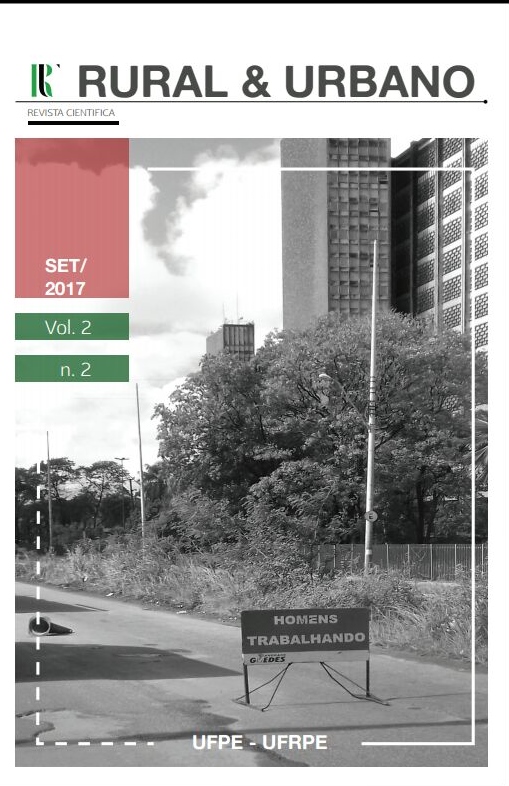ENVIRONMENTAL CONFLICTS IN THE IRRIGATED SCHEME FROM PETROLÂNDIA MUNICIPALITY: SUBSIDY TO UNDERSTAND THE LAND MANAGEMENT AT THE MIDDLE-LOW SÃO FRANCISCO BASIN
DOI:
https://doi.org/10.51359/2525-6092.2017.241050Palavras-chave:
Environmental Conflicts, Irrigated Settlements, Semi-aridResumo
The Itaparica region located between Pernambuco and Bahia had got part of his territory flooded due to the construction of the reservoir of the Luiz Gonzaga Hydroeletric, built in 1988. About 10,500 families were transferred to resettlement areas as result of the reservoir construction. More than 21,000 people lived in urban areas and more than 19,000 in rural areas. The resettlement were used construct new cities and areas with irrigated settlements and small villages (agrovilas). The resettlements of Apolônio Sales, Icó-Mandantes and Barreiras Bl2 are the oldest in the Petrolândia Municipality, only the first present different infrastructure. This research aims to discuss the challenges in land management of the irrigated schemes of Chesf in Petrolândia after the Itaparica reservoir construction. Field works, including interviews and workshops using the Constellation Analysis methodology was used as tool in the elaboration of this study. Currently the agrovilas are with an outdated water supply and treatment system most likely causing health issues for the resettled people. The agrovila area presents a disorderly urban increase, normally caused because of immigrants who came to the irrigated scheme to work in the farming or to invest in the agriculture. They also expand new irrigated schemes through inappropriate areas, leaving residential garbage in the native vegetation and using water uncontrolled, causing reduction in the water supply. The debate over the water and land access and the effective action of the public power together with the producers are urgent to solve the existing problems in the resettlements.Downloads
Publicado
Como Citar
Edição
Seção
Licença
Autores que publicam nesta revista concordam com os seguintes termos:
a) Autores mantém os direitos autorais e concedem à revista o direito de primeira publicação, com o trabalho simultaneamente licenciado sob a Creative Commons Atribuição-Não Comercial-Compartilha Igual 4.0 Internacional  , que permite o compartilhamento do trabalho com reconhecimento da autoria e publicação inicial nesta revista.
, que permite o compartilhamento do trabalho com reconhecimento da autoria e publicação inicial nesta revista.
b) Autores têm autorização para assumir contratos adicionais separadamente, para distribuição não-exclusiva da versão do trabalho publicada nesta revista (ex.: publicar em repositório institucional ou como capítulo de livro), com reconhecimento de autoria e publicação inicial nesta revista.
c) Autores têm permissão e são estimulados a publicar e distribuir seu trabalho online (ex.: em repositórios institucionais ou na sua página pessoal) a qualquer ponto antes ou durante o processo editorial, já que isso pode gerar alterações produtivas, bem como aumentar o impacto e a citação do trabalho publicado.

